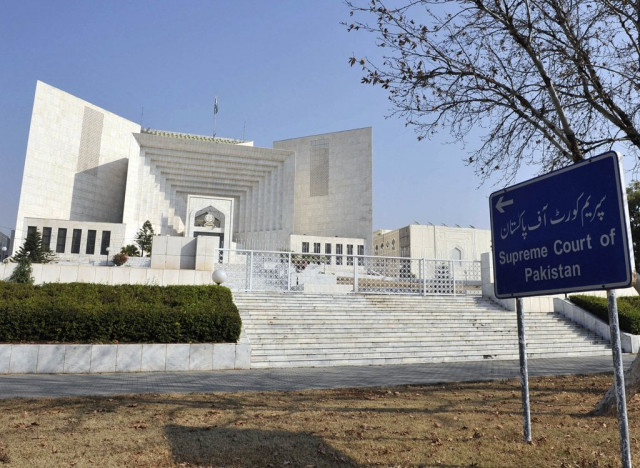SC to review ruling on mentally-unstable convicts
Review petitions had been filed by Punjab IG prisons and wife of death-row prisoner

The Supreme Court on Thursday allowed the hearing of a review petition filed by the prosecution department of Punjab against conviction of a mentally-unstable death-row prisoner.
A five judge larger bench headed by Justice Manzoor Ahmad Malik and comprising Justice Sardar Tariq Masood, Justice Ijazul Ahsan, Justice Mazhar Alam Khan Miankhel and Justice Syed Mansoor Ali Shah, resumed the hearing of different review petitions.
The review petitions had been filed by Inspector General of Prisons, Punjab, and Safia Bano, the wife of death-row prisoner Imdad Ali against a four-year old apex court judgment in Ali’s case. In 2017, the Punjab prosecution department had also moved a criminal review petition.
Imdad Ali is suffering from schizophrenia and had spent 18 years on death row – four of them in solitary confinement. However, in its 2016 order, the Supreme Court had said that schizophrenia was not a “permanent mental disorder” but a “recoverable disease” and ruled that a psychiatric disorder like schizophrenia did not subjugate the death sentence.
“In our opinion, rules relating to mental sickness are not subjugative to delay the execution of a death sentence which has been awarded to a convict,” the court had said in its 11-page judgment in the famous Imdad Ali case.
Now the larger bench has accepted the review petitions for further proceedings. The bench appointed renowned psychiatrist Dr Mowadat Hussain Rana and Haider Rasul Mirza advocate as amici curiae to assist the court in the cases of mentally unstable death-row prisoners.
The other cases include the Kanizan Bibi case. Bibi has spent almost 30 years on death row. She was diagnosed with schizophrenia in 2000 and has been under treatment at the Punjab Institute of Mental Health (PIMH) and Kot Lakhpat Jail, Lahore, since then. A recent report by the Human Rights Ministry titled ‘Plight of Women in Pakistan’s Prisons’ also mentioned Kanizan as a case study.
About Ghulam Abbas case, the apex court directed the office of the advocate general of Punjab to submit names of doctors for a medical board to evaluate Abbas’s mental condition before the next hearing.
Abbas was granted stay by the former chief justice of Pakistan Asif Saeed Khosa in May 2019 on a petition seeking a fresh medical evaluation after it emerged that he was being treated by strong anti-psychotic drugs by the jail authorities. Sentenced to death in 2006, Abbas has a family history of mental illness and has also exhibited evidence of epilepsy.
Regarding Khizar Hayat case, the court was informed that he passed away in March last year due to multiple ailments. Diagnosed with paranoid schizophrenia by jail authorities in 2008, Hayat had become severely anaemic and hypotensive. He died at the Jinnah Hospital, Lahore.
The bench noted Pakistan’s obligations to mentally-ill prisoners under the international law and treaties. Pakistan is a signatory to international treaties, such as the International Covenant on Civil and Political Rights, which prohibit the execution of mentally prisoners.
The case was last heard nearly two years ago in October 2018 when the court had ordered fresh medical examinations of Imdad and Kanizan. The medical board was also asked to inform the court about the history and extent of their illness and the prospects of recovery from their ailments.
Imdad Ali and Kanizan Bibi, mentally ill condemned prisoners, are confined in the Vehari District Jail and the Punjab Institute of Mental Health (PIMH), Lahore respectively. They were later shifted to the Rawalpindi Central Jail for examination by the medical board in compliance with the apex court’s October 23, 2018 order. It is learnt that the medical commission submitted its report last year.
The Justice Project Pakistan (JPP), an organisation working for the welfare of mentally-ill prisoners believe that the SC ruling in this case could set a precedent and has an important bearing on the fate of mentally-ill prisoners in the Pakistani jails. The JPP has reported that there are at least 600 mentally-ill prisoners; while many more remain undiagnosed and untreated.


















COMMENTS
Comments are moderated and generally will be posted if they are on-topic and not abusive.
For more information, please see our Comments FAQ